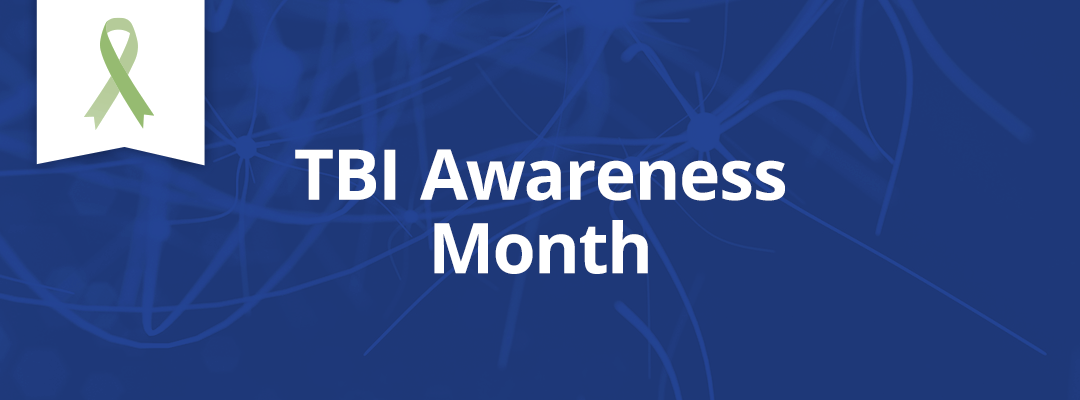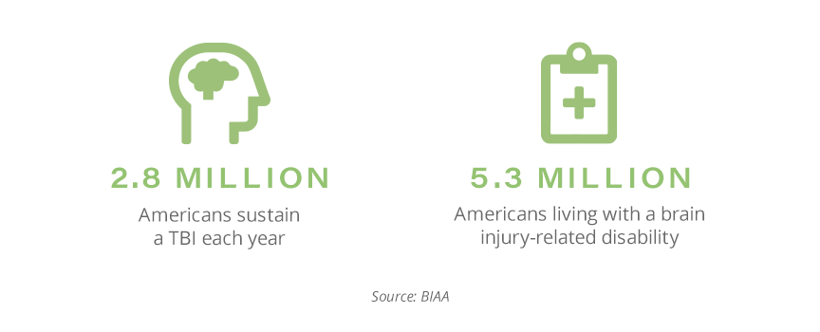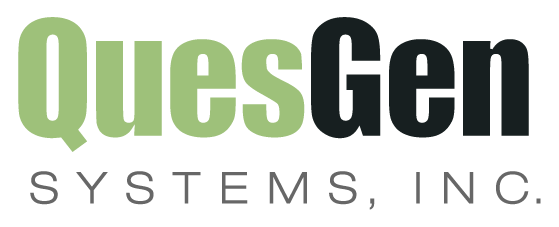TBI Awareness: Tackling the Silent Epidemic through Research
by Mike Jarrett | Mar 19, 2021 | TBI | comments

Did you know that brain injury is a leading cause of death and disability in the U.S.?
According to the Brain Injury Association of America, at least 2.8 million Americans sustain a traumatic brain injury (TBI) each year. And there are more than 5.3 million children and adults in the United States who are living with a permanent brain injury-related disability.
March is TBI Awareness Month
It’s during this time each year that all those involved with or affected by brain injuries come together to bring attention to this important cause. Having worked with a significant number of investigators studying TBI and other neurological functions, QuesGen Systems stands in solidarity with those in observing TBI Awareness Month by helping to:
- Increase understanding of brain injury as a chronic condition
- Reduce the stigma associated with having a brain injury
- Showcase the diversity of injury and the demographics of the community
- Improve care and support for individuals with brain injury and their families
As the leader in brain health research for academic and commercial studies, we understand the long-term physical, cognitive, and psychological health disabilities of TBI. This all adds up to direct and indirect costs of over $76 billion dollars every year and we aim to make an impact here with an emphasis on with groundbreaking TBI research studies.
Effective Brain Injury Diagnosis and Treatment Changes Lives
While great strides have been made in understanding what happens to the brain following TBI, many clinical trials still fail to identify specific treatments that significantly help people with brain injuries.

Every affected person has a unique set of circumstances based on multiple variables— location and severity of injury, age and health, time between injury and treatment, etc. Couple these variables with differences across treatment centers and data management in clinical studies, and the careful coordination of potentially life-changing research studies becomes critical.
Scientists, physicians, and research investigators working together to develop better treatments for TBI understand that it begins and ends with streamlining clinical data management. By striving to better collect, validate, curate, analyze, communicate, and secure TBI data, we can achieve more accurate diagnosis and treatment.
With reliable data collected through groundbreaking research studies, the one in every 60 people living with a brain injury can truly realize they are “More Than My Brain Injury” — the inspirational and empowering theme of TBI Awareness Month.
A Look into TBI Case Studies
It’s research studies like these — studies QuesGen is proud to be a part of — that are playing an important role in increasing our knowledge and advancing therapies for TBI around the world.
 CENTER-TBI
CENTER-TBI
In a study that encompasses 4,500+ patients in 80+ Centers in 25 countries, The CENTER-TBI team is developing objective, multi-modal classification schemes and outcome measures for TBI. The research will improve the characterization and classification of TBI with the inclusion of emerging technologies while identifying the most effective clinical care using Comparative Effectiveness Research (CER) approaches. >> Read the CENTER-TBI case study.

TRACK-TBI
Having enrolled 3,700 patients across 18 sites — with mild to severe brain injuries — the collection of data with this study has been a game-changer.
By linking clinical, imaging, proteomic, genomic, and clinical outcome databases into a shared platform, scientists within InTBIR and elsewhere have enabled and enhanced their research with unprecedented collaboration. >> Learn more by reading the research profile.
 Hennepin County Medical Center
Hennepin County Medical Center
Hennepin County Medical Center (HCMC) has undertaken the nation’s largest, single-center prospective study on concussion and TBI, tracking more than 1,200 participants.
Led by HCMC’s neurosurgeon Dr. Uzma Samadani, the research aims to develop objective, multi-modal classification schemes and outcome measures for traumatic brain injuries. >> Learn more by reading the case study.
_______
Others Involved in Brain Injury Research
In addition, there are a number of organizations who are making a considerable impact in the fight against TBI, including:
 One Mind
One Mind
One Mind is leading a revolution in brain science that will bring better treatments to patients now! One Mind is a 501(c)(3) non-profit organization that works to speed up discoveries in brain health through the principles of large-scale, open-science research.
Their mission is to radically accelerate cures for brain illnesses and injuries by funding and fostering scientific research collaborations and initiatives. They do this by bringing together the best minds in neuroscience around a collective goal to more accurately diagnose, treat, and even cure brain disease and injury. Rather than focusing on a specific brain illness or injury, they are working to support and confirm a research paradigm that can be replicated across all brain diseases; from Alzheimer’s, autism and depression, to schizophrenia, bipolar and beyond.
 International Neuroinformatics Coordinating Facility (INCF)
International Neuroinformatics Coordinating Facility (INCF)
The mission of the INCF is to develop, evaluate, and endorse standards and best practices that embrace the principles of Open, FAIR, and Citable neuroscience. INCF also provides training on how standards and best practices facilitate reproducibility and enables the publishing of the entirety of research output, including data and code. INCF brings together the world´s leading scientists to solves challenges in standardization and interoperability, and helps facilitating the acquisition and annotation of diverse datasets.
 Federal Interagency Traumatic Brain Injury Research (FITBIR)
Federal Interagency Traumatic Brain Injury Research (FITBIR)
The FITBIR Informatics System is an extensible, scalable informatics platform for TBI relevant data (medical imaging, clinical assessment, environmental and behavioral history, etc.) and for all data types (text, numeric, image, time series, etc.). FITBIR was developed to share data across the entire TBI research field and to facilitate collaboration between laboratories, as well as interconnectivity with other informatics platforms.
Sharing data, methodologies, and associated tools, rather than summaries or interpretations of this information, can accelerate research progress by allowing re-analysis of data, as well as re-aggregation, integration, and rigorous comparison with other data, tools, and methods. This community-wide sharing requires common data definitions and standards, as well as comprehensive and coherent informatics approaches.
_______
TBI Awareness Month: How You Can Make a Difference
The research never stops, but TBI Awareness Month happens only once a year. Let’s make the most of it and do our part to ensure the research, patient care, and education is as impactful as possible. Here are a few suggestions:
- Talk to others about traumatic brain injury. TBI is far more common that people realize. We’re the TBI experts, so it’s up to us to spread the word among our network of friends, family, and peers.
- Show support on social media. Tell your friends and colleagues you support the TBI research happening today by sharing the case studies we referenced in this article.
- Wear a green ribbon. People may not know what it represents right away, but it’s a great conversation starter. You can also get your own TBI awareness apparel.
- Volunteer. Whether it’s with an organization, health care facility, for a clinical trial, or with an individual or family affected by TBI, lend your time and a helping hand to the cause.
- Financial support. If you’re able, there are several ways to donate: charitable shopping, workplace giving, fundraising, planned giving, and more.
- Let others know they are not alone. If you or a loved one is affected by TBI, simply sharing your story can be the most powerful way to comfort and support those who need it most.
If you’re interested in learning more about how QuesGen is advancing brain health, or would like to tell us about your clinical research study, we’d love to hear from you.

